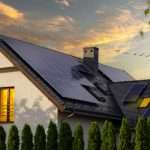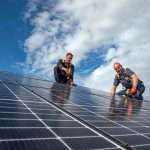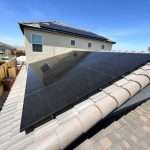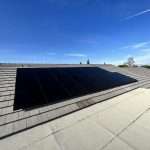Solar panels are portable, lightweight, and can be used to power anything from a small fan to a house. The two most common types of solar panels are thin-film panels and crystalline panels. Both have their pros and cons but there are some things you should know before purchasing one for your home or business.
Solar Panel Design and Durability
When it comes to solar panel durability, the most important factor is how they’re designed. Some panels are made with thin layers of silicon, while others use multiple layers of silicon and other materials in order to absorb sunlight more efficiently. The more efficient a panel is at absorbing sunlight, the longer it can last before needing to be replaced.
Solar panels also vary in their ability to withstand harsh weather conditions such as heavy rain or excessive heat. If you live somewhere that experiences extreme temperatures on a regular basis, make sure you purchase a solar panel that can withstand these conditions before purchasing your system.
Product Ratings
The product ratings you see on solar panels and solar cells are based on the amount of energy they produce.
A solar panel’s rating is measured in watts, which is a unit of power. A watt measures the rate at which electric current flows through an object or one joule per second. A typical household light bulb uses 60 watts (60 joules per second), but your phone charger may only use 1 watt (1 joule per second).
Solar panels are rated based on their peak output capacity under ideal conditions: sunny days at noon with no clouds or other obstructions to absorb light from reaching them. This measurement is called “peak watts,” and it represents how much average sunlight your system produces over time—not just once!
For example, if you have a 10-watt panel connected to a 12-volt battery (12V), then you’ll be able to store up to 120-watt hours of energy in that battery over one day (10W x 24 hours = 240 Wh).
Cost
The main thing to know is that solar power systems are a bit costly. This can make it seem like a daunting, impossible task to get one installed on your home or business. But don’t worry! There are ways to save money on solar panels and make the process much more affordable for you.
One option is purchasing your solar panels online or you can ask your local installers for suggestions instead of buying directly from a store. You’ll often save hundreds or thousands of dollars especially if you’re willing to wait a few weeks for shipment—although there’s no harm in calling up local businesses if this isn’t possible for some reason.
The other option is buying less efficient solar panels because they cost less. For example, an 80-watt panel will produce more electricity than an 85-watt panel but cost significantly more money upfront; so if budgeting is tight right now but future funds are expected soon (such as after graduation), then going with less efficient equipment would probably be wise since its initial cost is lower than what would be required.
Efficiency
The efficiency of a solar panel refers to how much energy it can convert from sunlight into electricity. The higher the percentage of energy you get, the more efficient your solar panels are.
Power output is how much power can be produced by a solar panel—for example, 5 watts or 20 watts.
Wattage is how many watts can be used at once and depends on the load connected to them (e.g., fans and lights).
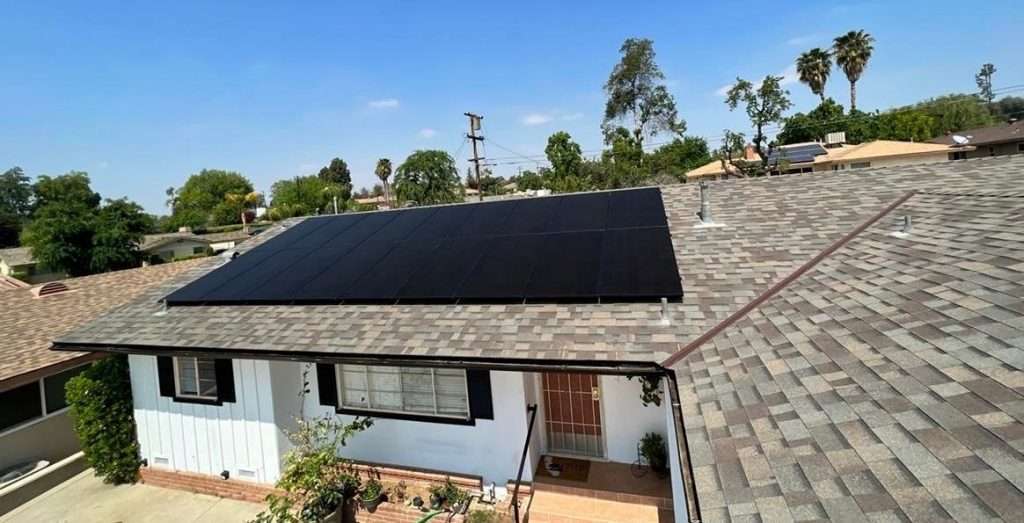
Solar Cell Type
The type of solar panel you choose will depend on a number of factors, including your budget and the size of your space. If you have a large home or business, then solar panels may make sense. However, if you don’t have much room for them on your roof—or if you’re just starting out with renewable energy and don’t want to commit too much upfront—you might want to consider a small system like this one from Arc Energy (which covers about 1/10th an acre).
There are five basic types of photovoltaic cells: monocrystalline, polycrystalline, amorphous silicon (a-Si), cadmium telluride (CdTe), copper indium selenide (CIS), and copper indium gallium selenide/gallium diselenide (CIGS/CIGAS). Each has its photovoltaic cells strengths and weaknesses relative to others so choosing which cell type is best depends on what matters most to you but there are some general guidelines that can help guide your decision-making process when it comes time to install solar panels at home or work.
Power Output
Power output is the most important factor to consider when buying a solar panel. This number tells you how much energy, in watts, your panel can produce in one hour of full sunlight on a clear day.
Therefore, it’s vital to know how many watts your device needs before purchasing a solar panel. If you don’t know this information offhand, refer back to the product manual or contact the manufacturer directly for assistance!
Conclusion
The best solar panel is the one you choose based on your needs and budget. You should also consider whether you need a flexible design that is portable or if you want something more stationary. The first step to choosing the right solar panel for yourself is knowing what type of energy source will work best for your lifestyle.
The best solution, of course, is to ask the experts for help. Arc Energy Solutions. can help you with your energy needs. We will work with you to provide you with the best solution that fit your lifestyle and your budget. Call us now so we can share with you how our system operates and we can answer your inquiries as well.

